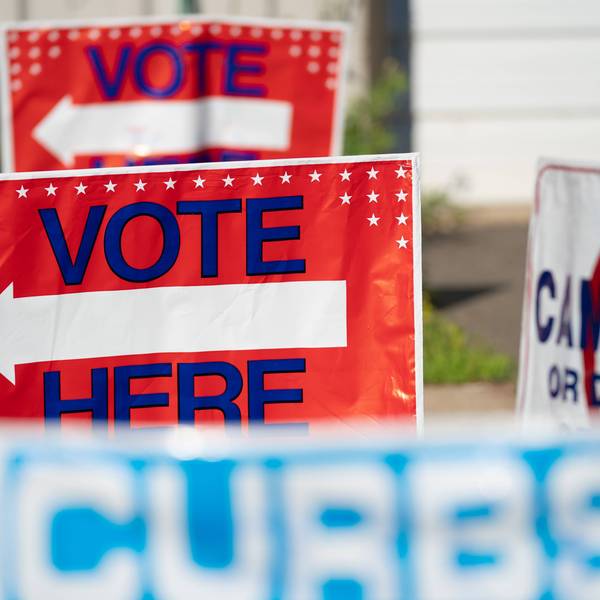For much of the last decade, the state of North Carolina has not truly been a representative democracy.
That's a pretty dramatic statement, and one that the average American has a difficult time computing. Yet it's true, and the national spectacle of the Old North State's lurch rightward since 2011 bears it out. When North Carolina Republicans won a majority in our state's General Assembly in 2010, one of their very first acts was to redraw themselves a supermajority of the legislature. This has plunged the state into years of bitter litigation with the federal government that was not resolved (kind of) until just last year at the Supreme Court.
During that time, Republicans have ruled North Carolina with a more or less free hand. The results have been alarming, but standard fare for today's GOP: homophobic and transphobic social policy, curtailing abortion rights, shredding gun regulation, cutting taxes for corporations and the wealthy. But their chief priority has been entrenching their political power from democratic accountability. And in this way, the North Carolina GOP is an ominous sign of how purple state Republicans are reacting to demographic and generational change across the Sun Belt.
In short, they've decided to simply deny Democrats, especially people of color, the franchise entirely.
With their control of state government, North Carolina Republicans didn't stop at gerrymandering a Congressional map that sent 10 Republicans and 3 Democrats to Washington, in a state that is mostly 50/50. In developing their voter ID law, they collected information on racial differences in voting behavior, and then wrote the law to disproportionately disqualify blacks on the basis of their conclusions. Their actions "targeted African Americans with surgical precision," said one federal judge in striking down the law. They eliminated same-day voter registration. Purged registration lists. Shortened early voting periods and closed poll sites in majority black areas. And this, from the party that does not have a single person of color in their entire legislative caucus. (By contrast, people of color make up 47% of the Democratic House caucus and 41% in the Senate.)
That's what the last near-decade here in North Carolina has been: a steady erosion of voting rights, and with them, our democracy.
Ask any North Carolina progressive, and they'll tell you that the last nine years has been an exhausting, dispiriting and frustrating era in our state. The sense of dismay in our once-moderate state being hijacked by right-wing radicals who've insulated themselves from voter accountability has been alarming to see in modern America.
It has been especially galling to see these measures change the whole course of national politics. You have the North Carolina GOP to thank for the unhinged radicalism of Congressman Mark Meadows, for example. The legislature "cracked" the deep-blue city of Asheville, running a district boundary right through the campus of UNC-Asheville (even through a dorm hallway!), to create two safely deep-red districts and ensure that Asheville's Democrats wouldn't be a threat. North Carolina's 15 electoral votes went to Donald Trump in 2016 by just 3.5 points, much of which is attributable to widespread voter suppression.
But finally, there's good news.
Under new court-ordered maps in 2018, the Democratic "Blue Wave" election flipped districts across our state, breaking the supermajority and giving Governor Cooper's veto teeth again. And this year, in 2020, we have yet newer legislative maps. They're still tilted towards the Republicans--after all, the Republicans drew them--but there is, finally, a viable path for Democrats to take back the majority.
Can you imagine the relief and swell of angry and frustrated hope that North Carolina progressives are feeling these days?
Our path to taking back the General Assembly majority and flipping North Carolina blue again runs through just a small number of close, competitive districts. Democrats need to flip just 6 seats in the House and 5 in the Senate to take control of either chamber, and they are ready. We've recruited strong candidates in all of these races and more, and they are hitting the campaign trail to end this sad chapter in North Carolina history.
This is why, this week, I launched the Long Leaf Pine Slate.
The Long Leaf Pine Slate is a site that profiles the handful of candidates--5 women and 4 men--whose races will determine whether Democrats can put the adults back in charge. It's not a PAC, but connects to an ActBlue dashboard where contributions are sent directly to candidates themselves. When we launched this week, we raised several thousand dollars for our candidates in just the first 48 hours. Prominent national and state Democrats boosted the effort, and I'm optimistic more will follow.
The battle to bring democracy back to North Carolina is a microcosm of a battle going on across the Sun Belt. Stopping Republican misrule and putting our state, like our country, back on track starts with the grassroots--small donors, and voters like you and me, choosing to step up and back candidates ready to do the right thing. The Old North State needs your help. Thank you, in advance.




